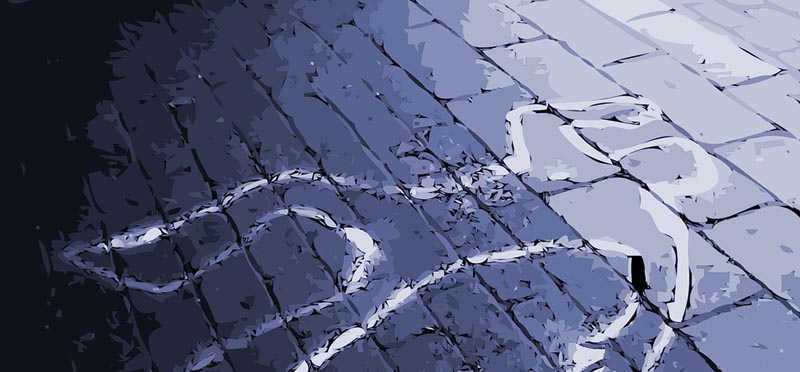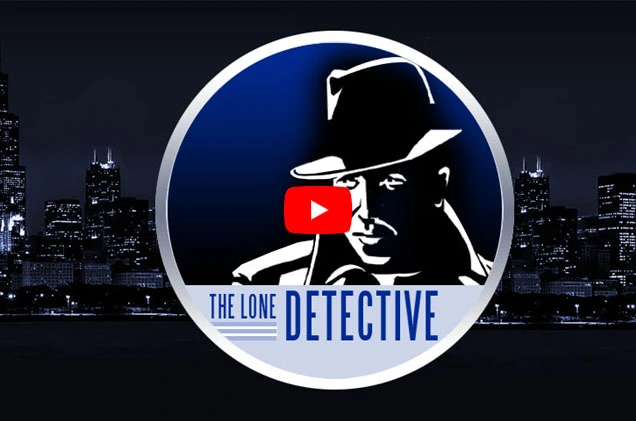
The Lone Detective is an online puzzle game, in which you are solving a criminal case, usually a cold case, which is a term for case that was already closed due to lack of evidence or lack of solution. But all of those cases do have a solution hidden somewhere in their files and it is up to you to find them. If you're a fan of such shows as Columbo, CSI or Prime Suspect you know that the whole essence of the murder mystery genre is to find that one little bit of information.
The Lone Detective is an online detective game, which can be summarized in a single sentence: The Lone Detective is like reading a crime novel, where the second half of the story is missing. You will get the crime scene description, notes of the original detective in charge, the transcripts of interrogations and the evidence that were gathered. All you have to do is analyze them and put together the story that was behind that crime.
After creating an account, you can access the full case files, including all the details (like names, addresses, photos, etc.) which are not available to the non-registered visitors. You can open any of the files available to you at any time and work on that file as long as you want, there is no time limit or order, in which you can access the files, but of course, it is recommended to start with tutorial cases or cases with lower difficulty level.
Police reports usually provide the basics information from the early part of the investigation: who reported the crime, when, how. Also, it often describes what the first police officer on the scene or detective in charge had seen or done after arrival.
If the body was found (which is in most cases), the coroner will provide you with the details that can help you with your investigation, like when the victim most likely died or how.
The description or plan of the crime scene can provide you with some additional information, like the location of evidence found or where the body was discovered. Also, you can learn about the floor plans of the buildings important for the case, which can be helpful.
Testimonies provide you with a transcript of what the witnesses told the police. They can provide you with some vital information, especially since some of those witnesses can be the suspects in your case. In open cases, some testimonies may be available after you stumble upon a new information.
The material evidence gathered by the police can have various nature: from cars, weapons and other items, to phone records, bank statements or contents of computers. In open cases, it is possible that some evidence will become available after you stumble upon a new information.
In every case file you will have a separate notebook available, in which you can record your thoughts, evidence or conclusions that will help you solve the case. The notebook is stored in the game, so if you return days or weeks later, your notes will still be there waiting for you.
Available in short cases only - the list of people, who (according to original investigators) might have been involved in the crime.
Available in open cases only. You can make queries to the archives, where potentially you may find the missing piece of information, but it is better to have a theory before you waste a lot of time on pointless queries.
Available in open cases only. The lab can provide you with additional information about evidence that you have available in the file.
Important in every single case. Although you look for evidence, most of the cases require some dose of creative thinking to fill the gaps in the story or interpret the significance of the evidence available.
This is a premium feature, available to users, who make a donation to support our game. The informant can help you out a bit if you are stuck in a case. He offers 3 levels of help: basic information to help you kick off in this case, information to guide your investigation in the right direction, or information about a piece of evidence that you might have overlooked. He will not provide you with the solution, but can give you a clue where you should look for answers.
When you think you know what happened in this case, you can send your solution to the Game Master, who will review it. The solution must present the case as the user sees it and answer the basic questions, like: who? how? why? The list of questions may vary between the cases. You will be notified via e-mail once your solution has been reviewed by a Game Master. If your solution is rejected, he can provide you with some clues that should push your investigation further, but he will not solve this case for you.
Unless your solution meets all the criteria (logical motive behind the murder, description of what happened, evidence with explanation) it will be rejected, but you can have as many goes at the same case as you want, there is no time limit or attempts limit as long as you put some effort in it. You can also read more about creating a proper solution right here.

There are two ways to play The Lone Detective: the easy way and the hard way. I know it's a cliché, but to make things worse it is up to you to decide which way is the easy one and which is the hard one, so let's call them the short way and long way.
The long way is, in our opinion, the hard way. You get through the evidence, read them all, analyse every detail that may point into the direction of whom the killer was. It is time-consuming and not much fun, that's why we think it is the hard way.
Every case has its logical motive, if you will find the motive behind the crime, you do not need to get through all the evidence, only that bits that might confirm your theory. It is less time-consuming and will put your brain to the test.
There are three kinds of cases: cold case (where every single piece of evidence was collected), open cases (where some of the evidence you will have to discover yourself through archives or the lab) and short cases (where the file content is very limited).
In cold case files, it is all about finding the piece of evidence that the others had missed.
In open case, you have to ask the correct questions in archives or the lab to get to the bottom of the case.
The short cases will put to test your creative thinking - there are no testimonies, a small amount of evidence and some gaps in the stories.